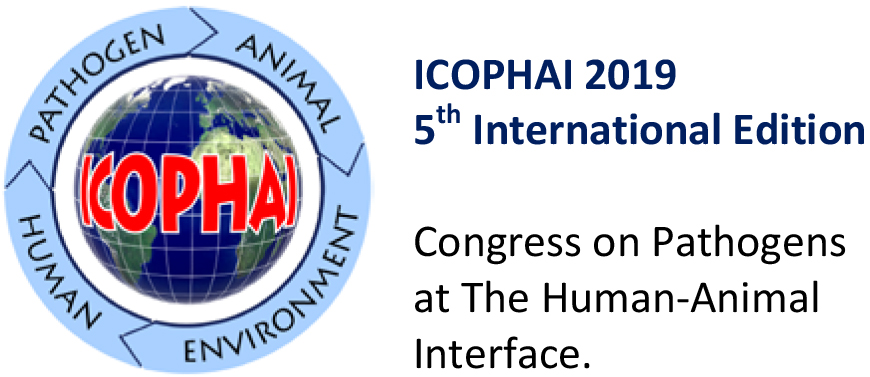
The 4th International Congress on Pathogens at the Human-Animal Interface (ICOPHAI) is scheduled to take place in Doha, Qatar, November 7th to 9th, 2017 under the theme: “Environmental Challenges and Impact on Global Health”. The goal of the 4th Congress, ICOPHAI 2017, is to bring together a diverse group of scientists from developing and industrialized countries of the world and stimulate interactions using the “One Health” concept.
Our specific aims are to: (i)Stimulate interactions among scientists and with policy-makers from various geographic regions and disciplines working in the areas of health, agriculture and environment; (ii) Exchange scientific information on infectious and non-communicable disease risk factors, complex issues such as antimicrobial resistance, current technological advances in diagnosis, vaccine development, as well as the limitations and gaps in knowledge on pathogens at the animal-human interface and; (iii) Strengthen the host nation (Qatar’s) global academic capacity, scientific interactions pertinent to the above missions; and outreach activities managing their emergence and persistence.
Why Qatar? The Eastern Mediterranean region has proven itself as a global logistic hub and tourism destination and played a strategic role in the international logistic market of foods and supplies. The region has also faced challenges such as Middle Eastern Respiratory Syndrome (MERS). The State of Qatar has specially invested on education, research and development, which consolidates its leading role in building sustainable capacity in public health in the region. Our proposal for Qatar to host ICOPHAI 2017 is timely and represents a strong action to consolidate the ICOPHAI consortium and develop mutually-beneficial partnerships.
The thematic areas addressed during ICOPHAI 2017 congress include:
- KEYNOTE ADDRESS- "Environmental challenges and impact on global health."
- Special Session: Zika virus, Emerging and re-emerging Infectious Diseases
- Panel Discussion: One Health and impact of climate change;
PLENARY SESSIONS
- Antimicrobial Resistance and drug related issues;
- Biosecurity, Biodefense and Disaster Response;
- Pathogenesis, vaccine development and new Meta-Genomic Technologies;
- Food-borne and Water-borne Diseases;
- Parasitic and environmental Zoonoses;
- Innovative Capacity Building, e-Learning and Outreach approaches

